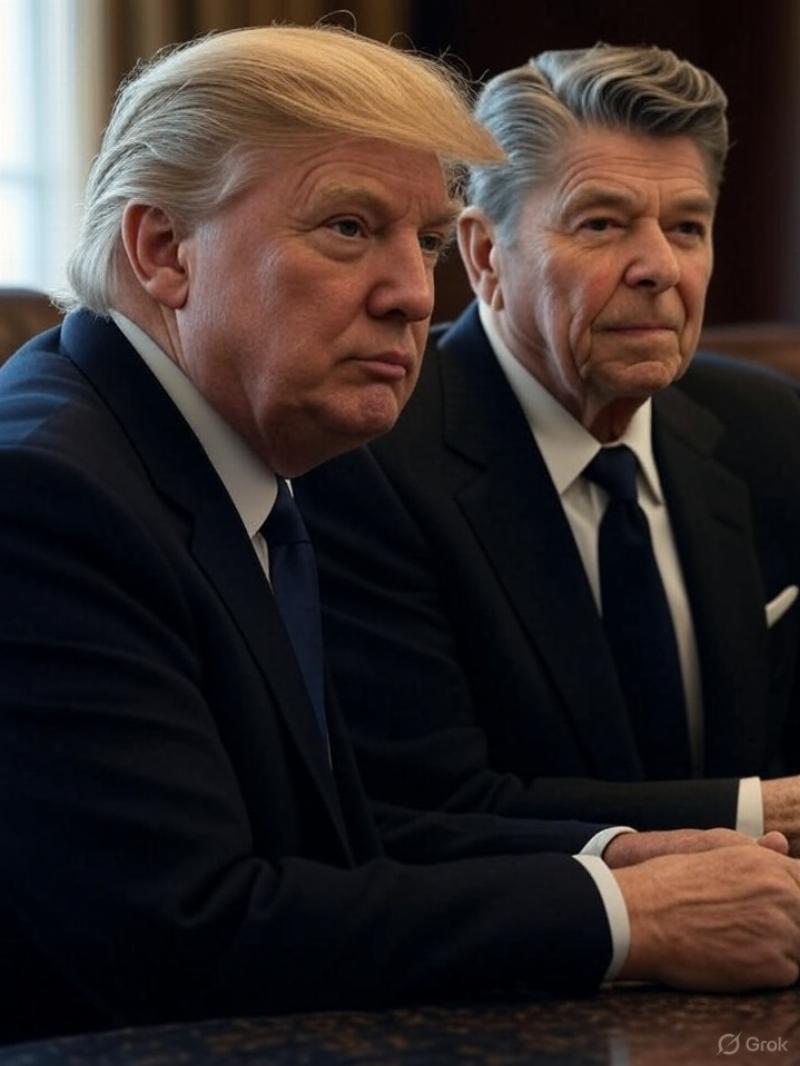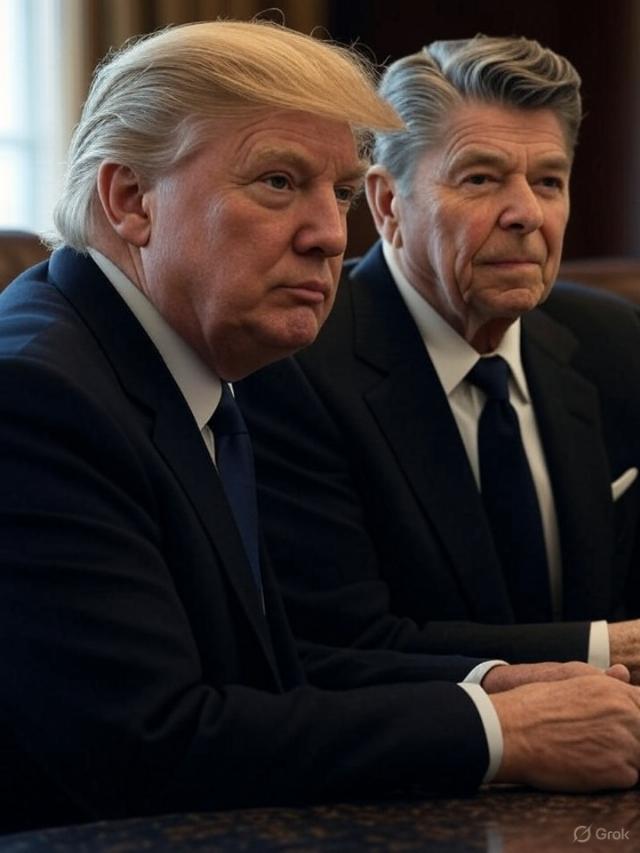


It could be argued that presidential speechwriters are just another group of Washington D.C. bureaucrats on the federal payroll. Presidents deliver hundreds of speeches and rely on speechwriters to craft their remarks with strategic input that reflects their voice and policy agenda.
President Ronald Reagan had a stellar speechwriting team, but always reserved final edit. His speeches often reflected optimism and storytelling finesse. Reagan, known as “The Great Communicator,” not just for his eloquence, but for his ability to connect and convey complex ideas in unpretentious, relatable terms remains legendary.
Reagan famously challenged Soviet leader Mikhail Gorbachev with his Berlin Wall speech saying, “Mr. Gorbachev, tear down this wall!”— a defining Cold War moment not written by Reagan but by his speechwriter Peter Robinson, whose weekly program “Uncommon Knowledge” is not to be missed. Reagan’s 1989 farewell address included: “I wasn’t a great communicator, but I communicated great things” underscored Reagan’s humility to the very end.
Reagan’s radio and Hollywood tenure sharpened his timing, tone, and technique, whereas President Donald Trump’s background is from the boardroom and reality television. Both presidents and their public engagement diverge greatly in tone, delivery, and resonance. Reagan believed in plain language and heartfelt conviction. Trump tends to lecture, while never dismissing a chance to argue.
Whether poking fun at his age during a 1984 debate with Democrat presidential candidate Walter Mondale — “I will not make age an issue of this campaign. I am not going to exploit, for political purposes, my opponent’s youth and inexperience” — or diffusing ideological differences, Reagan’s levity made him disarming and relatable, especially to those on the other side of the political aisle.
Reagan was a master of political levity that was strategic, self-effacing and sprinkled with Americana — a diplomatic salve. He employed it to assuage criticism, build solidarity, and underscore his message in a blend of Hollywood timing, Midwestern charm, and political savvy.
Reagan’s classic: “Honey, I forgot to duck” to First Lady Nancy Reagan after surviving the 1981 assassination attempt set him apart from many presidents before and after him.
This stands in stark contrast to today’s political class. It is like juxtaposing a Roosevelt Fireside Chat to a Trump after-hours Twitter storm.
Trump’s approach has been more forceful and unfiltered. Trump’s speeches often reflect a combative tone — one that rallies supporters through candor and repetition.
Reagan’s humor often served as a bridge across political divides. Trump’s demeanor, by contrast, thrives on mustering loyalty and drawing lines. Rather than using humor as a softener, Trump deploys sarcasm and rhetorical bravado. His bearing projects defiance, while at the same time, a brash confidence that many consider arrogance.
Where Reagan projected the theatrical cadence of an actor-turned-president, Trump channels the brash energy of a provocateur — a salient characteristic of a typical outer-boro New York City native swimming against the Manhattan tide.
Both men can read a crowd, yet where Reagan sought consensus through appeal, Trump courts consent through bravado and one who famously deviates from prepared texts. For some, this is a major part of Trump’s appeal.
Reagan thrived in the television era, where charisma and storytelling ruled. Trump must navigate through a minefield of fragmented social media platforms each demanding a different tone and tempo where brevity and immediacy dominate.
Too often Trump’s messaging is tailored to energize his political base rather than unify around a particular issue. Moreover, feedback is in real-time, which can lead to reactive or performative political theater where the medium shapes the message, while the delivery embellishes it.
Reagan’s speeches were crafted to marinate our collective consciousness, while Trump’s messaging aims for viral impact and an immediate dopamine engagement. Regardless, Trump has done the nation more for the good in six months than Biden did in four years; however, during his four-year hiatus from the White House, I was hoping Trump would pick up Amity Shlaes’s excellent tome Coolidge.
All that being said, we must have a sense of humor, and that includes the president, and when you look at Trump and Reagan side-by-side, you see they were both masters of comedy, albeit with very different styles.

Image from Grok.
